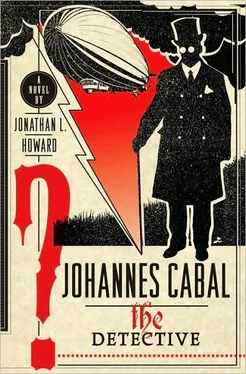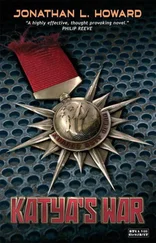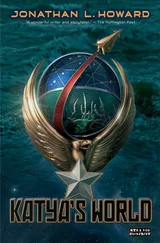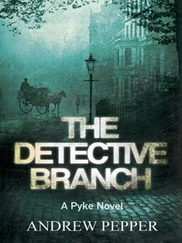It took Mirkarvia generations to recover financially from these humiliations, and the scars still run deep in the national character. The days of the Mirkarvian Empire are domestically regarded as a golden age for all, the terrible crimes of that period expunged from Mirkarvian schoolbooks. Politically, the ramifications of the empire’s collapse are still evident in Mirkarvia’s dealings with its neighbours. Her only local ally is the notoriously backward Katamenia to the north. They share no borders, however; travel between them must go through a mountainous isthmus of Senzan territory extending from the bulk of the country off to the west, where strict customs inspections are the rule. The only other route would require travelling over the Gallaco Sea, but Katamenia has no coastline. Thus, any such journey would still require some travel through either Senza or Polorus.
* * *
(A) In what year did Mirkarvia invade Senza?
(B) I) With hindsight, what was Dulcis III’s most serious error?
II) And without hindsight?
* * *
(C) Discuss any two (2) of the following statements:
I) Mirkarvia behaved like a right bunch of bastards.
II) Polorus behaved like a right bunch of bastards.
III) All countries behave like right bunches of bastards.
* * *
(D) Write a political treatise — not to exceed 250,000 words or 500 sides, whichever is less — detailing your solution to stabilising relations in the region. Military force above brigade level is not permitted, nor is divine intervention. You may include diagrams.
CHAPTER 2
in which a speech is delivered and there is a falling-out
“I should like my own clothes back,” said Cabal. “And my cane.” He was setting up an odd device consisting of a small diamond-shaped mirror on an armature over the recumbent emperor’s head. Cabal spun it experimentally with the tip of his finger and the reflected light flickered rapidly across the emperor’s eyes. The eyes, which had shown no inclination to cooperate, or even an acceptable job of tracking objects individually, twitched crazily before finally settling their gaze on the mirror.
Count Marechal watched, his arms crossed. “Your cane?” He remembered seeing it among Cabal’s possessions: an elegant ebony stick topped with an ugly silver skull headpiece, the high sheen of the smooth surfaces contrasting strongly with the tarnish in the eye sockets and between the teeth. “Sentimental value?” he said, sarcastically.
“As it happens, yes.” Cabal walked over to the count and took the emperor’s speech from him. “I bludgeoned my first failed experiment back to death with it. Thank you.” He returned to linking the mirror to a small electrical motor.
The count walked over to where Lieutenant Karstetz waited. “Get him what he wants, Lieutenant,” he said. Then he added softly, “We won’t have to put up with him for very much longer.”
“Good thing, too,” whispered Karstetz. “The people are getting very troublesome. We’re having to put down little demonstrations almost constantly.”
“That will all change in a few hours when the emperor gives his greatest — and last — speech.” He nodded in Cabal’s direction. “It would be a useful trick to be able to trot dead people out when necessary. Has any progress been made on Cabal’s notes?”
“All a bit technical for me, I’m afraid,” said Karstetz, who found getting dressed unassisted all a bit technical for him. “The cipher boffins are very impressed that he does it all in his head, though. They said something about a rolling key, but they lost me after that.”
“What’s a ‘rolling key’?”
“That’s the bit that lost me. Sorry.”
“It hardly matters if they take a little while to break it. Anybody who’s going to be dying in the next week or so can stay that way with my blessing.”
Cabal folded his legs under him into a corrupt lotus position beside the emperor and flicked through the speech. “Your work, Count?”
“Yes, as it happens. Yes, I wrote it. Why?”
“No reason,” said Cabal, holding the paper with his fingertips. “Very … rabble-rousing. Very appealing to the mob.”
“All the best speeches are,” said Marechal, scenting dissent. “The intention is to get the hoi polloi behind a little healthy expansionism, not dazzle them with a philosophical discourse.”
“No danger of that,” said Cabal. He leaned over and flicked the mirror with his finger. It started spinning rapidly, powered by the motor. The late emperor’s gaze settled on the glittering object and stayed focussed there. Cabal leaned forward and read in an intense whisper, “People of Mirkarvia. Friends. I come before you today to share a vision I have of the future. Not just the future of our own great and noble country but also that of our neighbours …”
Marechal gestured curtly at Karstetz and the two men tiptoed noisily out, their boots clacking and squeaking in the great echoing room. When they were gone, Cabal paused. He looked at the emperor, then he looked at the door through which the two officers had just left. Then he smiled a smile that had no intention of getting anywhere near his eyes.
* * *
Brocade, Your Imperial Majesty, your favourite!” It is always a little disappointing when somebody fulfils a stereotype to several decimal places. Prezof, the emperor’s tailor — more of a costumier, really — would have been laughed off the stage if he’d ever played his job. Tired, dull clichés, the critics would have said. Isn’t the playwright living in the present? Surely no respectable theatre would dare turn out a production of anything other than farce in which a personal tailor is a flouncing, pompadoured, powder puff? A pathetic, simpering, mincing … and so on and so forth. Prezof was all these things. He lived alone but for an obese cat that he called Felice. He had a well-thumbed copy of The Castle of Otranto , with his favourite passages underlined in green ink. He had an impressive collection of embroidered antimacassars on all the armchairs in his house which he changed daily whether anybody had sat there or not. There was nothing more important than the creation of fine clothes for His Imperial Majesty and not an hour went by when he wasn’t actively pursuing the muse. The materials were of the finest, the workmanship superlative, the design execrable. For Prezof may have been dedicated, hardworking, and diligent, but he was not in the least talented. It summed up Mirkarvia very nicely that nobody noticed. Even Cabal, whose artistic eye had been allowed to atrophy, found it painful to be too close to the exquisite robes in which the emperor was due to make his speech. As Prezof bustled the unusually silent emperor into his new clothes, Cabal took his blue-glass dark spectacles from his pocket, polished them on a small piece of chamois that he kept handy, and put them on. That was much better.
Prezof favoured him with a sour glance. Cabal’s black suit had been returned to him, repaired, cleaned, and pressed. A new white shirt, cravat, and shoes made him feel like himself again. His cane lay across his lap. He’d stunned Karstetz by thanking him for its return and almost sounding as if he meant it. All Prezof saw was an unexciting, conservative ensemble. Still, black was always good — but as a cloak? Yes, a cloak! Cabal tended to stride — a cloak would look marvellous billowing about him as he did so. So far, so obvious. Then Prezof demonstrated that he hadn’t lost his knack by mentally adding mauve galoshes and a tall fez with a feather. Cabal was not a vain man but he did stand upon his dignity, and if he had only been able to see that image in Prezof’s mind he would certainly have considered murder.
Читать дальше











